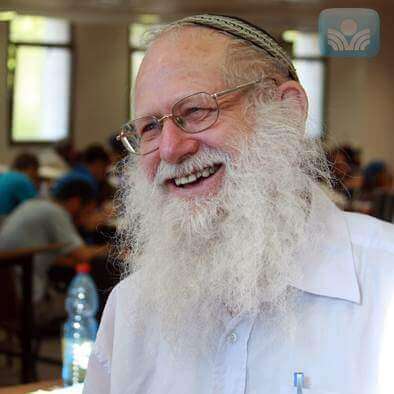Message for Today
by HaRav Dov Begon – Head of Machon Meir

Remember what G-d did to Miriam.
“Remember what G-d did to Miriam on your way out of Egypt” (Deuteronomy 24:9). Rashi comments, “If you would like to avoid being smitten with leprosy, speak no Lashon Hara [evil gossip]. Remember what was done to Miriam, who spoke about her brother and was smitten.”
Why must we recall precisely the failure of Moses’s sister Miriam, the most important and pedigreed woman in Israel? The Torah was teaching us that even important people unfortunately are liable to speak Lashon Hara. As we see from Miriam, importance and greatness do not immunize one from Lashon Hara and its bitter consequences.
Another major principle derived from Miriam about guarding the tongue is this: The greatest amount of Lashon Hara is spoken within the family. Parents sometimes speak it about their children, children about their parents, siblings, aunts and uncles, in-laws about one another, precisely the same way that Aaron and Miriam, from the most prestigious family in Israel, fell prey to Lashon Hara when Miriam spoke about Moses. Therefore, the main effort to guard the tongue, an act that purifies the soul, has to take place within the home.
Today, we are in the midst of the month of Selichot, days in which man seeks to rectify his relationship with G-d and with his fellow man, a time of repentance and purifying the soul. At this time, our greatest effort at rectification must take place within the home — both the private and the national home.
Every Jew in his own home must increase his good thoughts. These will lead to positive speech and to good deeds. As far as our national home, our national leaders must be careful not to speak evil about one another. By such means we will emerge meritorious on Rosh Hashanah and be sealed for a life of goodness and peace.
We must not ignore the outcasts and fallen.
“If you see your brother’s ox or sheep going astray, you must not ignore them. You must return them to your brother…. If you see your brother’s donkey or ox fallen under its load on the road, you must not ignore it. You must help him pick up the load” (Deuteronomy 22:1,4). Rashi explains the words “You must not ignore it”: “You must not avert your glance as though you do not see the lost object, or the animal floundering under its load.” The Torah is commanding us to strive to return the lost object and to help pick up the animal, despite the effort and inconvenience required. We must not avoid these acts, shirking responsibility and closing our eyes to our duty to help our fellow man.
All this applies to an ox, sheep or donkey, but how much more so to helping our fellow man himself! There are people who may be labeled “outcasts,” people who have gotten lost on the path of life. There are people who are floundering due to the heavy burdens weighing down upon their hearts and their shoulders — problems of health, earning a living, family, etc. How much more so that we must help them as well! We must make a real effort to help the outcasts of life and those who are falling or have fallen due to the heavy burden they bear.
Today, we are witnessing “the ingathering of the wanderers of Israel” (Shemoneh Esreh). Millions of Jews who were banished throughout the world are returning home. Some of them are looking for themselves, for their identity and their path. Some are beset by heavy burdens of earning a living, personal problems, etc. If we are duty-bound not to ignore straying beasts and animals having difficulty bearing their burdens, how much more so that we are forbidden to close our eyes and our hearts before our brothers. By each Jew aiding and strengthening his brother, we will merit to see with our own eyes how good and pleasant it can be when brothers dwell together.
Right now, we are living in a time when materialism holds sway. What characterizes the materialistic man and his society is self-interest. The desire to take, to receive, stands at the top of his priorities. He has no ideals. It is difficult for him to give; difficult for him to strive on behalf of his fellow. Closing one’s eyes so as not to see people’s suffering becomes a norm.
Yet the day is not far off when all this will change. More and more people will understand that what is really important in life is simply to be a good person, who helps others and is sensitive to their needs. The way to become a good person is to cling to the character traits and pathways of G-d, for, “The L-rd is good to all and His mercy is over all His works” (Psalms 145:9).






